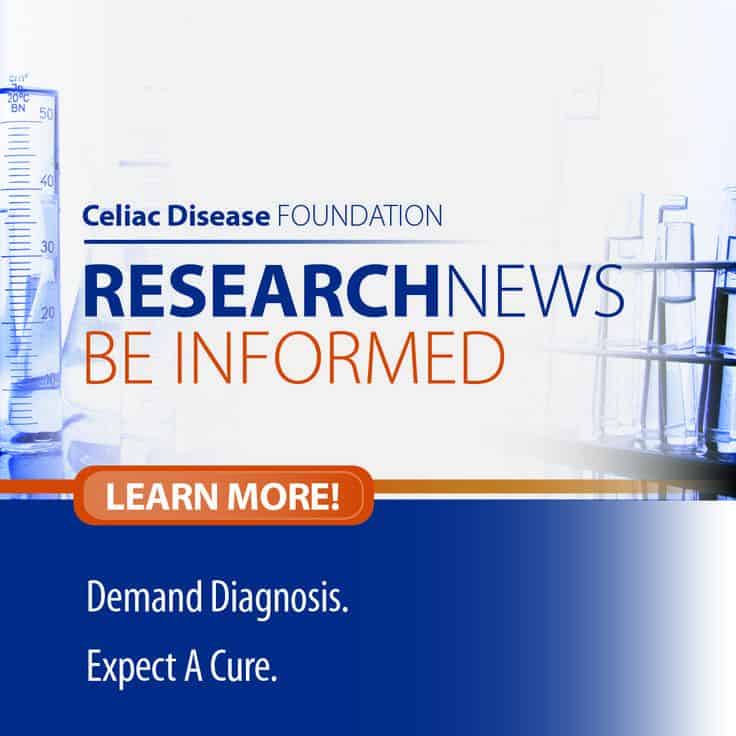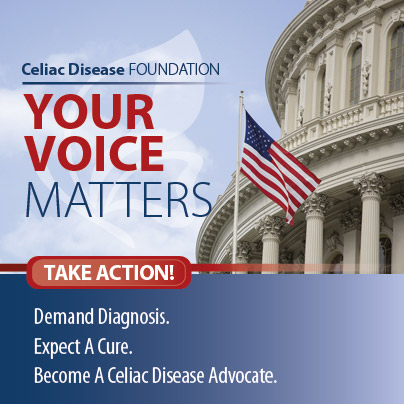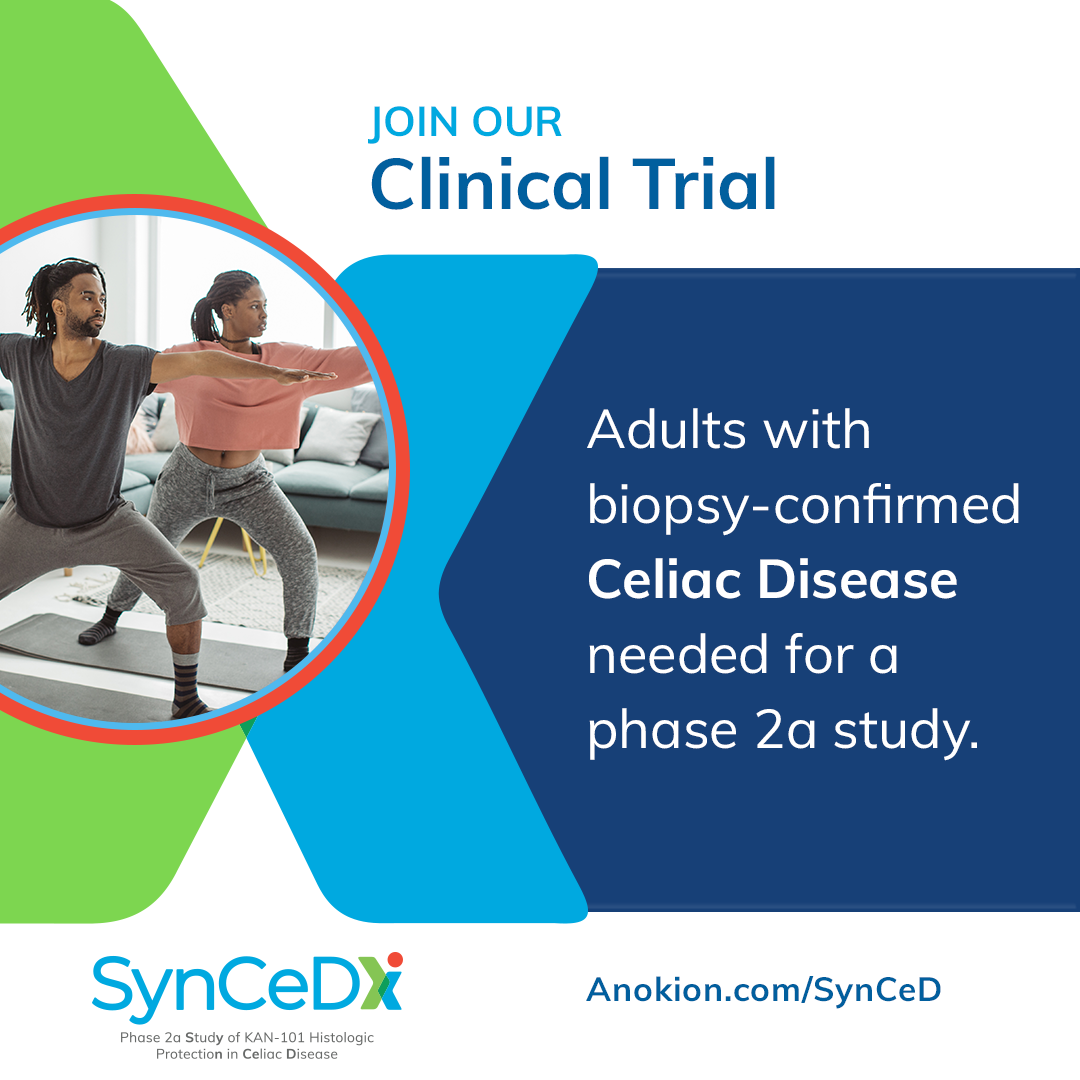2016 Year in Review
For more than 26 years, Celiac Disease Foundation (CDF) has been leading the fight to drive diagnosis, treatment, and a cure for celiac disease and non-celiac wheat sensitivity, to improve the quality of life for all those affected, and to compel the public – from healthcare providers, to caretakers, government regulators, and biomedical researchers – to take this disease seriously.
Central to that ongoing struggle was our need for answers:
- Why does it take so long to get a correct diagnosis?
- What are disease-related symptoms?
- What are the long-term implications of the disease?
- What are the associated health conditions?
- Why are there no treatments other than lifelong adherence to the gluten-free diet?
- What is the definition of “gluten-free?”
- When will there be a cure?
Over the years, many answers have emerged from research and advocacy efforts. Critical questions remain, especially around the continued low diagnosis rate, the lack of treatments for unintentional and intentional gluten consumption, and a cure. In the future, 2016 may very well be the year we look back on as the turning point in the fight to conquer celiac disease and put the suffering of millions behind us.
As you read this year’s report, we hope you come to appreciate, as we do, how we are entering a new era of biomedical research that will lead to treatments and a cure for our disease. Nothing is more important in our work.
Research
In 2016, CDF launched its single most impactful initiative ever, iCureCeliac®. The diagnosis and the treatment of disease is at a tipping point, thanks to the marriage of genomics (genetic mapping to help understand diseases) and Big Data (using large sets of data to find disease patterns) analytics. As a result, there is a growing understanding that while a disease may be defined by one or more overarching characteristics, how it impacts the human body and mind, and how it is best treated and cured, can be quite specific to the disease carrier.
The implications of this understanding are driving a fundamental and extremely promising revolution in researching celiac disease, its treatments, and potential cures. And, at the very center of this revolution is the growing database of celiac disease and non-celiac wheat sensitive patients that we call iCureCeliac®. iCureCeliac® is a patient-powered research network (patient registry) that allows patients and caregivers to contribute medical information and their experiences living with celiac disease and non-celiac wheat sensitivity to help researchers improve treatments and find a cure. CDF has partnered with Celimmune to deploy the iCureCeliac® patient registry as a screen for phase 2 clinical study for refractory celiac disease type II. This is the first-ever use of the iCureCeliac® patient registry to support celiac disease therapeutic treatment development.
In February, the Effective Health Care (EHC) Program at the Agency for Healthcare Research and Quality (AHRQ) released it’s first-ever evidence review on Diagnosis of Celiac Disease. CDF is proud to have provided input for this much-needed and critical study, with CDF CEO, Marilyn Geller, serving as a Key Informant. There are many reasons why the release of this long-awaited review is important, but one of the most notable is the fact that for the first time, the U.S. government has decided that celiac disease is worthy of a comprehensive evidence review.
Last year, CDF partnered with the North American Society for the Study of Celiac Disease (NASSCD) to award a three-year, $150,000 grant to support young investigator research in finding the cause and treatment for celiac disease. In June of this year, the NASSCD began accepting applications for the Young Investigator Award for Celiac Disease Research, the winners of which will be announced in December. The primary goal of the Award is to attract exceptionally promising early career academic investigators to the field of celiac disease.
Advocacy
2016 advocacy efforts focused on empowering patients to drive diagnosis and research. In January, CDF was awarded a grant from the Patient-Centered Outcomes Research Institute (PCORI) to develop our Patient Advocacy Program, allowing us to train patients and caregivers to become more involved in research in ways that will impact the treatment of their disease. With live workshops in Los Angeles and Boston, webinars, and online access, we are creating a national network of advocates trained in patient-centered outcomes research (PCOR). The Patient Advocacy Program is part of a comprehensive effort by CDF to meet the public health challenge of increasing the diagnosis rate of and improving treatments for celiac disease and non-celiac wheat sensitivity, while working toward a cure. Learn more about the Patient Advocacy Program here.
Thanks to a gift from the Weitz Family, CDF developed a Back-to-School and 504 Plan Guide and webinar to help parents and children navigate the gluten-free diet in school. A 504 Plan is the federally-recognized method of detailing accommodations that need to be made by public schools to assure that a child’s gluten-free diet and disability needs are met. In this Guide, we offer suggestions for age-appropriate ways of managing celiac disease and non-celiac wheat sensitivity at school and college to ensure good health, proper development, and academic success. To review the Back-to-School and 504 Plan Guide, click here.
In August, CDF launched the Student Ambassador Program to enable our youth to take an active role in celiac disease advocacy and education efforts in their own communities. The Student Ambassador Program provides tools and resources for elementary, middle, high school, and college students to demonstrate the impact of celiac disease on individuals and their families. Learn more about the Student Ambassador Program here.
Education and support
CDF is dedicated to providing healthcare professionals and patients with innovative tools and technologies. In 2016, more than 6.5 million people used the resources at celiac.org. With the introduction of the “For Professionals” section at celiac.org, healthcare providers now have access to a comprehensive set of tools for the diagnosis and management of celiac disease. Furthermore, in support of our mission, we introduced three provider education programs to drive diagnosis and treatment of celiac disease.
In the first national effort to systematically address the emotional and psychological issues of people with celiac disease and non-celiac wheat sensitivity, CDF and Children’s National Health System (Children’s National), with a gift from the Resnick Family, launched a partnership to expand provider education around the emotional and psychological impact associated with celiac disease and to empower healthcare providers to identify and treat the medical and mental health aspects of the disease. A live workshop was held at Children’s National in Washington, D.C. in February and at the CDF National Conference in Pasadena, CA. The program is available online for patients and for providers.
In partnership with the Simon Family Foundation and the USC Keck School of Medicine, CDF funded the development of an internal medicine residency training program in celiac disease. The goal of this program is to create a national model to train young physicians in the recognition, screening, and treatment of celiac disease and non-celiac wheat sensitivity. USC residents are currently researching the barriers to screening and diagnosis in the primary care setting, results of which will inform the proposed curriculum.
To directly educate providers already in practice, CDF hosted and provided continuing medical education units to more than 100 physicians, dietitians, and mental health professionals at our 2016 National Conference. More than 3,200 people – patients, family members, caregivers, healthcare professionals, researchers, biopharmaceutical and diagnostic company representatives, and gluten-free foodies – attended the National Conference & Gluten-Free EXPO in Pasadena, CA. As a resource for both patients and providers, we developed a “What You Need to Know” video series, where Conference speakers discuss the information you need to thrive gluten-free and maintain good health with celiac disease and non-celiac wheat sensitivity. The video series can be found here.
Adding to our patient resources, and based upon recommendations from the world’s leading medical experts, we debuted the Adult and Pediatric Celiac Disease Follow-Up Checklists, which specify best practices in post-diagnosis celiac disease management for physicians and dietitians to deliver optimal patient care. Complementing this, CDF Chief Executive Officer, Marilyn Geller, served as the North American patient advocate for The Transition from childhood to adulthood in coeliac disease: the Prague consensus report. This is an important academic paper that offers recommendations to healthcare professionals to help manage celiac disease in adolescents and young adults and provide transition into adult healthcare for patients with the disease.
CDF_MarketPlace_Facebook_404x404_c1We also launched our new Lifestyle Hub, providing delicious gluten-free recipes that you can filter by course and cuisine type, as well as customizable meal plans to suit your dietary preferences and needs. Included in the new Lifestyle Hub is an interactive, nutritionally balanced Pediatric 7-Day Gluten-Free Meal Plan with tasty, kid-friendly recipes to help parents of newly diagnosed children, as well as those who continue to struggle to provide nutritious gluten-free meals for their children. With eight million users to date, our expanded Gluten-Free Marketplace is also featured in the Lifestyle Hub, which includes hundreds of gluten-free food items that can be filtered by allergens and preferences and purchased through Amazon with a single click.
In 2017 and beyond, we will focus on further PCORI efforts, including patient recruitment for iCureCeliac™, so that clinical research can happen faster, more efficiently, and less expensively than is possible now. CDF is grateful to the Gilbert Family for making possible the expansion of our iCureCeliac™ database. We will continue to work with the NIH, FDA, and Congress to elevate celiac disease on the nation’s healthcare agenda. Through celiac.org, we will add to our innovative digital tools for screening, diagnosis, and treatment. In the coming months, we will be adding clinical guidelines software for pediatric celiac disease diagnosis, in partnership with the North American Society for Pediatric Gastroenterology, Hepatology and Nutrition (NASPGHAN), to our “For Professionals” section of the website. We will be presenting our Celiac Disease Patient Advocacy Program live at the CDF National Conference and at the University of Chicago Celiac Disease Center, and we plan to present our initial findings from iCureCeliac™ at Digestive Disease Week in Chicago and the 2017 International Celiac Disease Symposium in India. Finally, we will be working with biopharmaceutical companies to recruit for clinical trials to advance treatments and a cure for celiac disease. We look forward to sharing the updates with you in the coming months as we work to solve celiac disease together.




